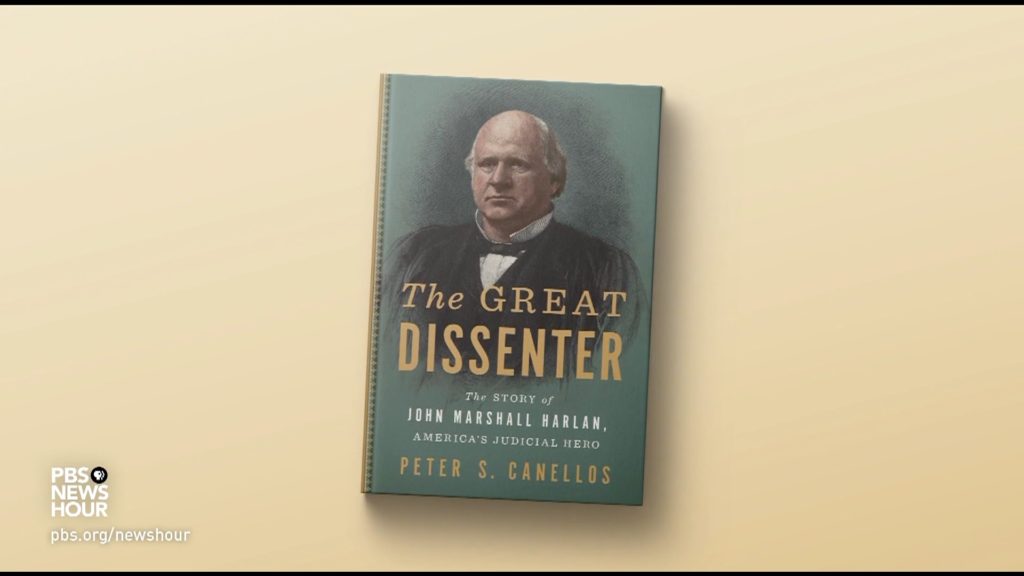John Yang:
Judy, the name of a Supreme Court Justice John Marshall Harlan may not be widely known these days beyond law students and constitutional scholars.
During his tenure from 1877 to 1911, the High Court enshrined racial segregation in American life.
In the biggest of those cases, Harlan’s vote was the lone dissent. He alone staked out positions that decades later would become the law of the land. Those visionary opinions led him to be known as the Great Dissenter, which is also the title of a new biography of Harlan by Peter Canellos, the managing editor of Politico.
Peter, thanks for being with us.
What drew you to write about John Harlan?
Peter Canellos, Author, “The Great Dissenter: The Story of John Marshall Harlan, America’s Judicial Hero”: Well, it started back when I was in law school 30 years ago.
And, as you know, it’s often a dry affair reading legal books, but Harlan’s opinions immediately sort of leapt off the page. Here was somebody who was bringing sort of a higher pitch of justice to his consideration of the law.
It also is striking, not only in the race cases, but also in some of these economic cases during the Gilded Age, that his opinion is the law of the land now, and not that of the court majority of his era.
I wanted to know why somebody would be so different from their colleagues at that time, and yet be proven right in history.













































